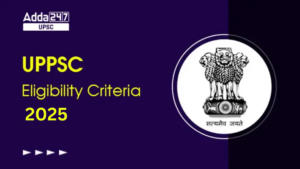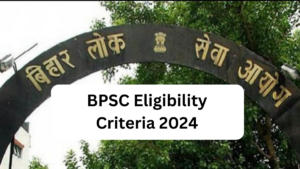Table of Contents
Kerala Judiciary Eligibility: The Kerala Judiciary offers a prestigious career path for individuals aspiring to become judicial officers in the state. To pursue this career, candidates must meet the eligibility criteria set by the Kerala High Court. The article provides detailed information about the Kerala Judiciary Eligibility Criteria for the year 2024.
It highlights the age limit, educational qualifications, and nationality requirements that candidates must fulfill to be eligible for the position. Additionally, the article also explores the Kerala Judiciary job profile, shedding light on the responsibilities, duties, and significance of this role in the administration of justice.
Kerala Judiciary Exam
The Kerala Judiciary Exam is a highly competitive examination conducted by the Kerala High Court to select eligible candidates for the esteemed position of Civil Judge in the Kerala State Judicial Service. This comprehensive examination comprises three stages: the Preliminary Exam, the main exam, and the Interview. It rigorously tests candidates’ knowledge in various areas of law, including substantive law, procedural law, and general knowledge.
The main objective of this exam is to evaluate candidates’ understanding of legal principles, their analytical skills, and their ability to apply laws effectively. Qualifying for the Kerala Judiciary Exam opens up rewarding opportunities for individuals to pursue a successful career in the Kerala judiciary, where they can make valuable contributions to the legal system and society as a whole.
| Kerala Judiciary 2024 Highlights |
|
| Name of Exam | Kerala Judiciary Exam 2024 |
| Conducting Body | Kerala High Court |
| Minimum Qualification | Degree in Law |
| Stages in exam | Prelims, Mains, Personal Interview |
| Mode of application | Online |
| Mode of exam | Offline |
| Official Website | https://hckerala.gov.in/ |
Kerala Judiciary Eligibility Criteria
The Kerala Judiciary Eligibility Criteria is a set of requirements established by the Kerala High Court for candidates aspiring to become Civil Judges in the Kerala State Judicial Service. To be eligible for the exam, candidates must meet certain criteria related to age, educational qualifications, and citizenship.
They should possess a degree in Law from a recognized university and be enrolled as an advocate under the Advocates Act, 1961. The age limit for candidates varies based on their category. Meeting the eligibility criteria is essential for candidates to participate in the Kerala Judiciary Exam and pursue a career in the prestigious Kerala judiciary.
Kerala Judiciary Previous Year Question Papers
Kerala Judicial Services Age Limit
The age limit for candidates applying for the post of Civil Judge in the Kerala Judiciary is set below 35 years. However, there are certain relaxations in the upper age limit for candidates from specific categories. Candidates belonging to the SC category can avail of an additional relaxation of five years, while candidates from the OBC category can avail of a relaxation of three years.
These relaxations in the upper age limit aim to provide equal opportunities and inclusivity in the selection process. Candidates need to meet the prescribed age criteria as per the Kerala Judiciary Eligibility to be eligible for the examination.
Kerala Judiciary Educational Qualification
For the Kerala Judiciary examination, candidates are required to hold a degree in Law. The degree should be recognized by the Bar Council of India, which is essential for enrolment as an Advocate. It is mandatory for candidates to possess a valid and recognized Law degree to be eligible for the examination.
The Kerala Judiciary Eligibility educational qualification ensures that candidates have acquired the necessary legal knowledge and skills to fulfill the responsibilities of a Civil Judge in the Kerala Judiciary. Meeting the prescribed educational qualification criteria is a crucial requirement for candidates aspiring to pursue a career in the Kerala State Judicial Service.
Kerala Judicial Services Nationality
To be eligible for the Kerala Judicial Services, candidates must fulfill the nationality criteria specified by the Kerala High Court. As per the eligibility requirements, candidates must be citizens of India. Additionally, candidates from Nepal or Bhutan, as well as Tibetan refugees who came to India before January 1, 1962, are also eligible for the Kerala Judicial Services.
Furthermore, individuals of Indian origin who have migrated from countries such as Pakistan, Burma, Sri Lanka, Uganda, Kenya, Zambia, Tanzania, Malawi, Zaire, and Ethiopia and have permanently settled in India can also apply for the Kerala Judicial Services. Candidates need to satisfy the nationality criteria to be considered eligible for the examination and subsequent selection process.
Kerala Judiciary Experience
As per the Kerala Judiciary eligibility criteria, there is no specific requirement of prior experience for candidates to be eligible for the examination. However, it is important to note that candidates must possess the necessary educational qualifications and meet the age limit criteria as specified by the Kerala High Court.
The focus of the selection process is primarily on assessing the candidates’ knowledge, understanding of the law, analytical skills, and suitability for the position of Civil Judge in the Kerala State Judicial Service. While prior experience in the legal field may be beneficial, it is not mandatory for eligibility. Candidates who meet the educational and age criteria can apply for the Kerala Judiciary Exam and participate in the selection process.
Kerala Judiciary Job Profile
The Kerala Judiciary job profile is highly esteemed and carries significant responsibilities within the state’s legal system. As a Civil Judge in the Kerala State Judicial Service, the officer is entrusted with the crucial task of dispensing justice, upholding the law, and maintaining order in the society. Their primary role involves presiding over civil and criminal cases, conducting hearings, examining evidence, interpreting laws, and delivering judgments.
Additionally, a Kerala Judiciary job profile is responsible for maintaining court records, issuing orders, summoning witnesses, and ensuring fair and impartial proceedings. They also play a crucial role in mediating disputes, encouraging settlements, and promoting alternative dispute-resolution methods.
The job requires comprehensive knowledge of the legal system, excellent analytical and decision-making skills, and the ability to handle complex legal issues. A Kerala Judiciary officer must demonstrate integrity, impartiality, and fairness in their judgments and maintain a high level of professionalism throughout their career.
Overall, the job profile of a Kerala Judiciary job profile offers an opportunity to contribute to the administration of justice, protect the rights of individuals, and uphold the rule of law in the state of Kerala.



 UPPSC Eligibility Criteria 2025, Qualifi...
UPPSC Eligibility Criteria 2025, Qualifi...
 UPSC EPFO Eligibility Criteria 2025, Qua...
UPSC EPFO Eligibility Criteria 2025, Qua...
 BPSC Eligibility Criteria 2024, Age Limi...
BPSC Eligibility Criteria 2024, Age Limi...
